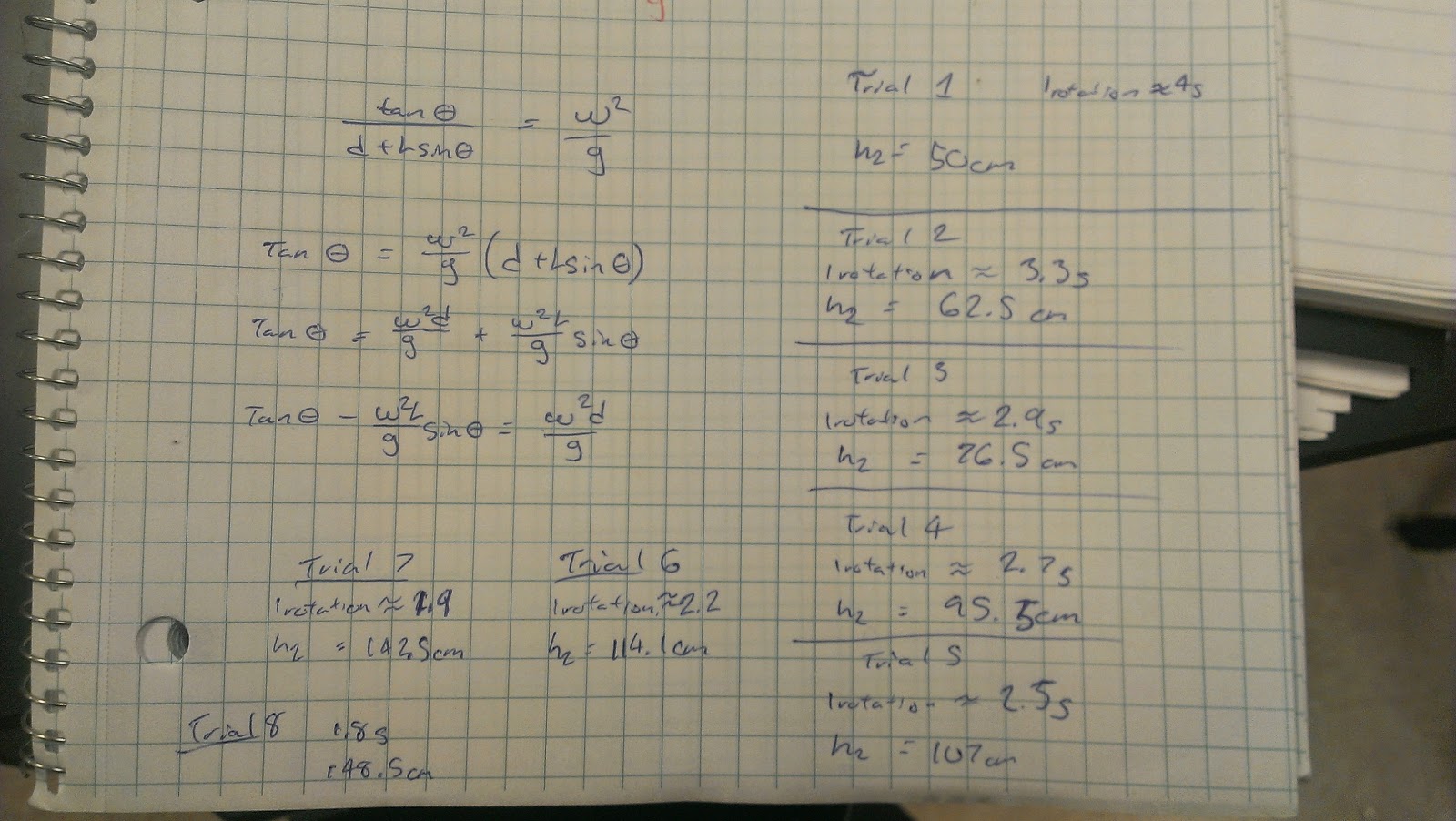Purpose:
We want to find a relationship between the angular velocity (omega) of this swinging pendulum and the angle (theta) it forms as its angular speed is increased.
Experiment:
We placed a small rubber stopper at the end of a string and then gradually began to increase the angular speed of the rig shown below. Once it was moving at a constant speed, a piece of paper was placed under the spinning stopper and raised to the point of the stopper just making contact and the height was recorded. this was done for five different angular speeds. We also recorded a period and averaged it out for each trial.
Above is a depiction oh the equipment we were to use and the things
to take into consideration for our calculations
Here the the the setup for the experiment. As you can see, it is very simple, a rod is attached to a motor which spins another perpendicular rod that in turn makes the rubber stopper spin around
Here we can see Prof. Wolf (left) attempting to record the value for the height of the
stopper and on the right we can faintly see the stopper in motion as it is
just about to pass over the paper for a height measurement
Above is our raw data that we obtained from the experiment before we calculated our theoretical relationship between the speed and angle. If you look closely, you can see that we had an equation but in order to solve for a single variable was very difficult so we just plugged it in into excel and let the program do the work for us
Here are our results with our theoretical values and actual calculated values. between the two there was only an 8% difference which is within the acceptable range considering that the way this experiment was rigged up, it had many flaws. One noticeable flaw was that the pole where the string was attached to was not level and this caused the stopper to sort of flutter in the air. Instead of traveling in a perfect circle, it had a sort of floppy motion





.png)
No comments:
Post a Comment